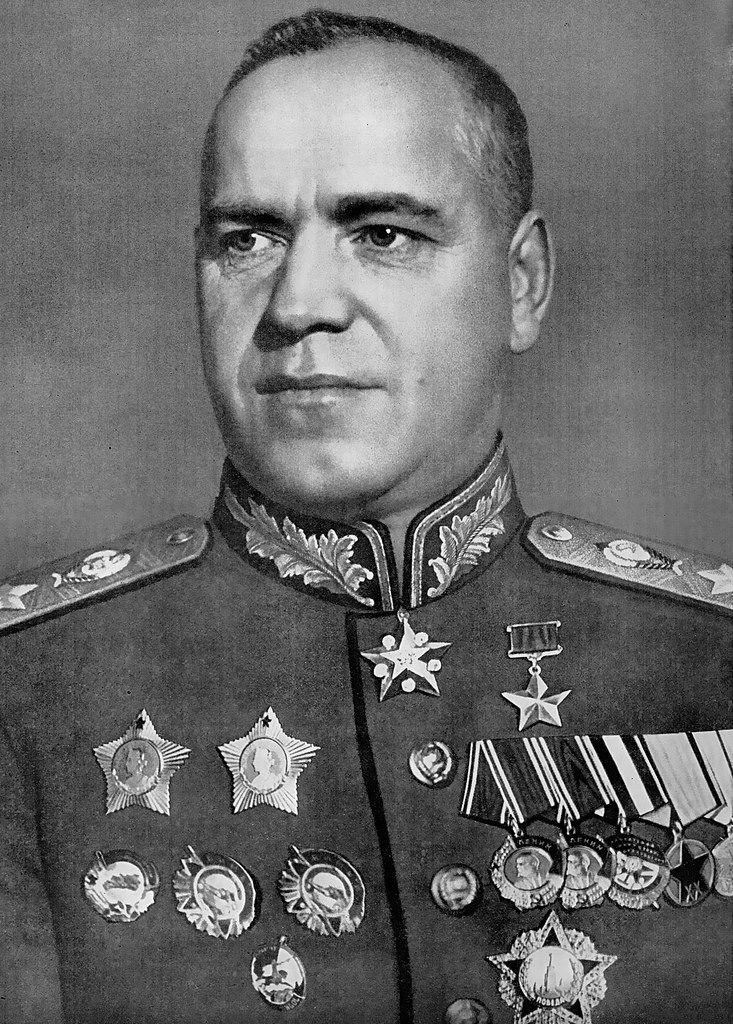Georgy Zhukov achieved fame as perhaps the most successful Soviet military commander of the Second World War. In the post-war Victory Parade in Moscow’s Red Square, Zhukov stole the show, inspecting the troops mounted on a white stallion.
Adored by the public and respected by international opinion, Zhukov’s position was always going to be vulnerable given Stalin’s innate jealousy. Sure enough, in 1946, Zhukov, heavily criticised for being ‘politically unreliable’, was dismissed and dispatched to a position of diminished responsibility in Odessa.
 Known for his uncompromising discipline, Georgy Zhukov placed strategic objectives far above the safety of the men he put into battle. Yet, despite his toughness, he could be rendered a wreck by a single harsh word from Soviet dictator, Joseph Stalin. During the early days of the war, he was once reduced to tears by an angry Stalin and had to take the handkerchief offered by Vyacheslav Molotov.
Known for his uncompromising discipline, Georgy Zhukov placed strategic objectives far above the safety of the men he put into battle. Yet, despite his toughness, he could be rendered a wreck by a single harsh word from Soviet dictator, Joseph Stalin. During the early days of the war, he was once reduced to tears by an angry Stalin and had to take the handkerchief offered by Vyacheslav Molotov.
Born 1 December 1896, Zhukov first saw action during the First World War, where, renowned for his bravery, he was twice decorated. He then fought with the Red Army against the Whites during the Russian Civil War of 1917-23 and quickly rose through the ranks. Stalin’s great 1930s purge of the military was for Zhukov ‘the most difficult emotional experience of my life’. Like many others, he kept a small packed suitcase near his front door should the NKVD come for him. But, unlike many of his contemporaries, he survived and indeed benefited by being able to step into the shoes of men purged, ‘dead men’s shoes’.
World War Two Continue reading
 The Germans had
The Germans had  Having been accepted as a partisan, despite her tender age, Zoya was given the name ‘Tanya’. Handed a revolver and trained how to use it, she was assigned to a small group of partisans and given instructions. Their first task was to lay mines on the Volokolamsk highway, just behind
Having been accepted as a partisan, despite her tender age, Zoya was given the name ‘Tanya’. Handed a revolver and trained how to use it, she was assigned to a small group of partisans and given instructions. Their first task was to lay mines on the Volokolamsk highway, just behind